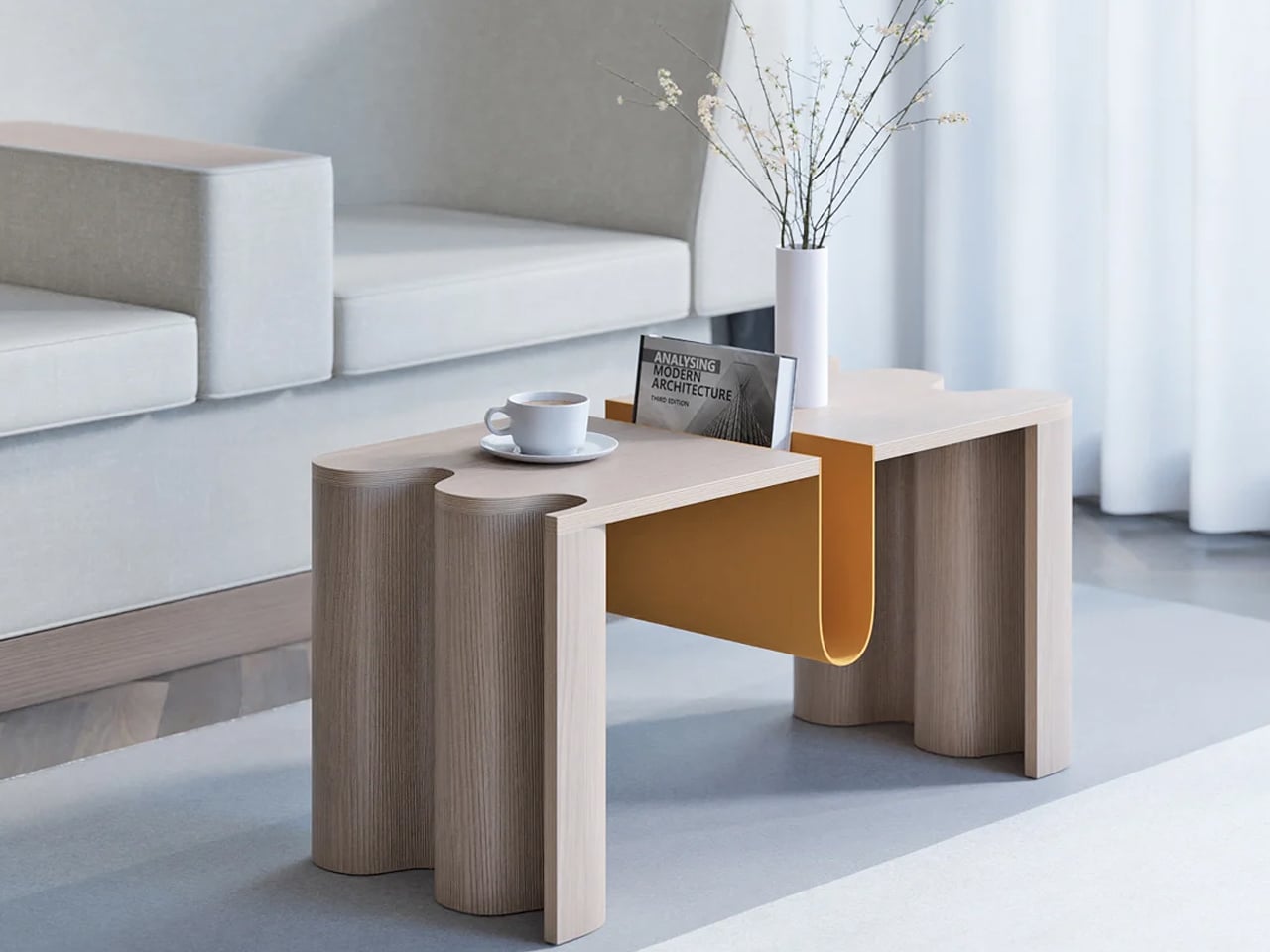
Scandinavian product design is celebrated for its functionality, minimalist aesthetics, and natural beauty. At its core, this design philosophy emphasizes simplicity and the harmonious integration of form and function. The use of clean lines, uncluttered spaces, and neutral color palettes reflects a cultural appreciation for minimalism and practicality.
Scandinavian design often incorporates elements of nature, using materials like wood, leather, wool, and stone to bring warmth and texture to products. This approach not only enhances the visual appeal of products but also ensures they are functional and user-friendly, making Scandinavian design a timeless and enduring choice.
1. Natural Materials
Natural materials play a significant role in Scandinavian design, reflecting the region’s rich landscapes of forests, lakes, and mountains. Designers favor wood, leather, wool, and stone, which add warmth and texture to their creations.
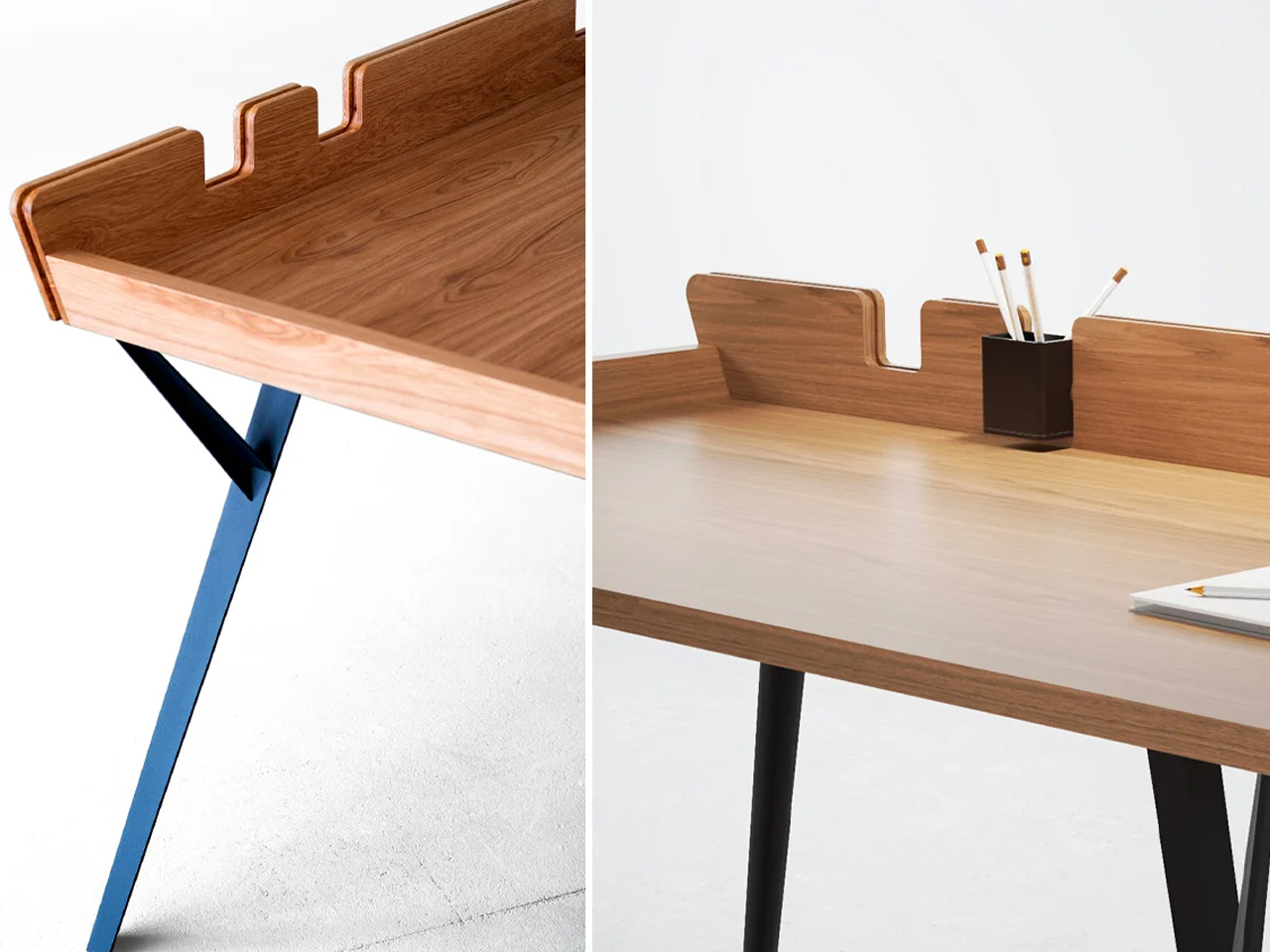
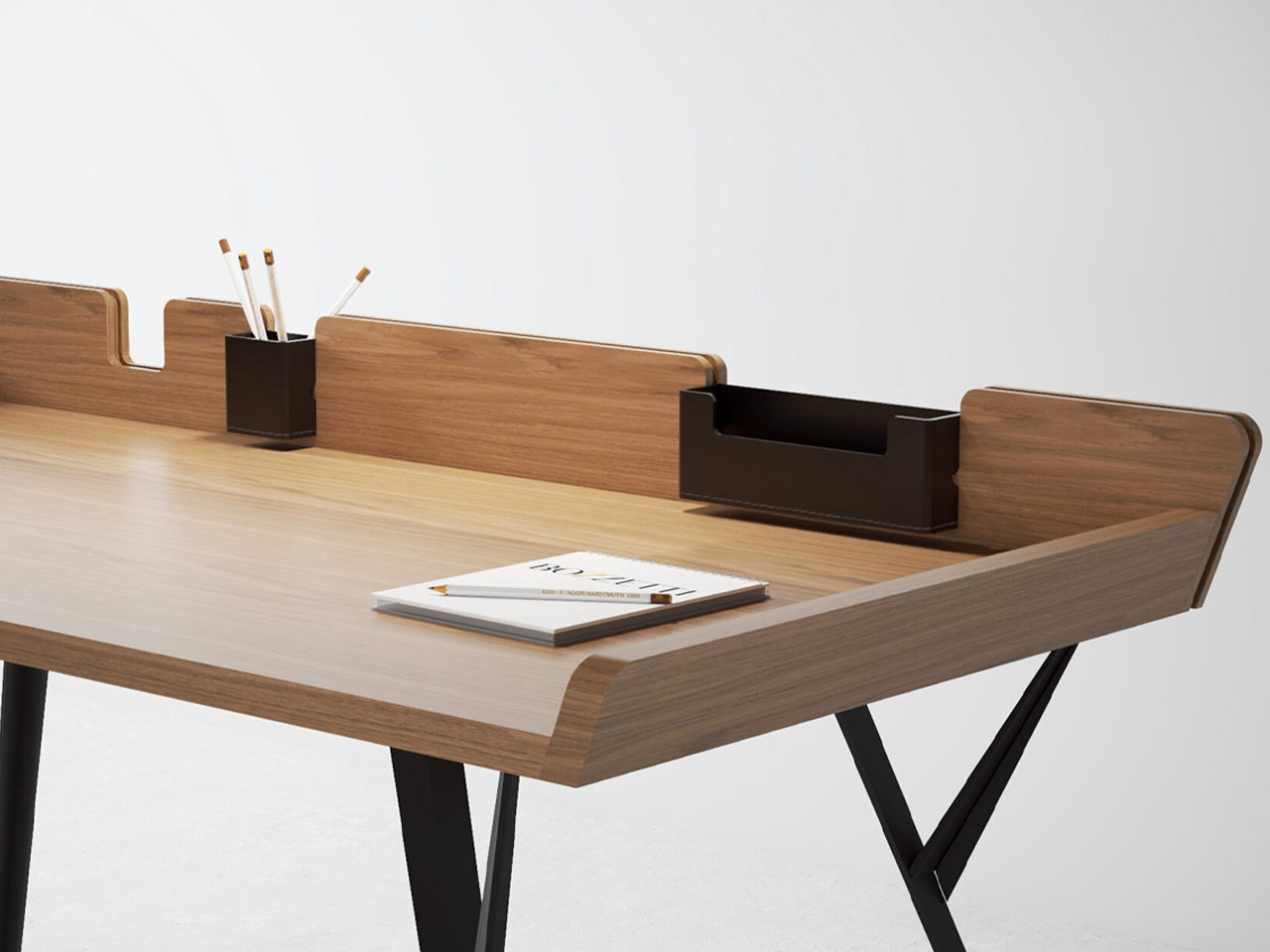
The Diag Desk by Marek Błażucki exemplifies this approach, using wood to create a sleek, functional workspace with integrated storage. Removable leather compartments and a wooden tabletop with raised edges provide organization without sacrificing aesthetics. This desk highlights the timeless appeal of natural materials, making it an ideal choice for modern workspaces seeking to balance functionality with elegance.
2. Sustainable Design
Sustainability is a core principle of Scandinavian design, rooted in the geography and landscapes of Nordic countries. Designers emphasize the use of sustainable and renewable resources to minimize environmental impact, fostering a deep commitment to eco-friendly practices. The Stokke PlayPad is a prime example of sustainable Scandinavian design.

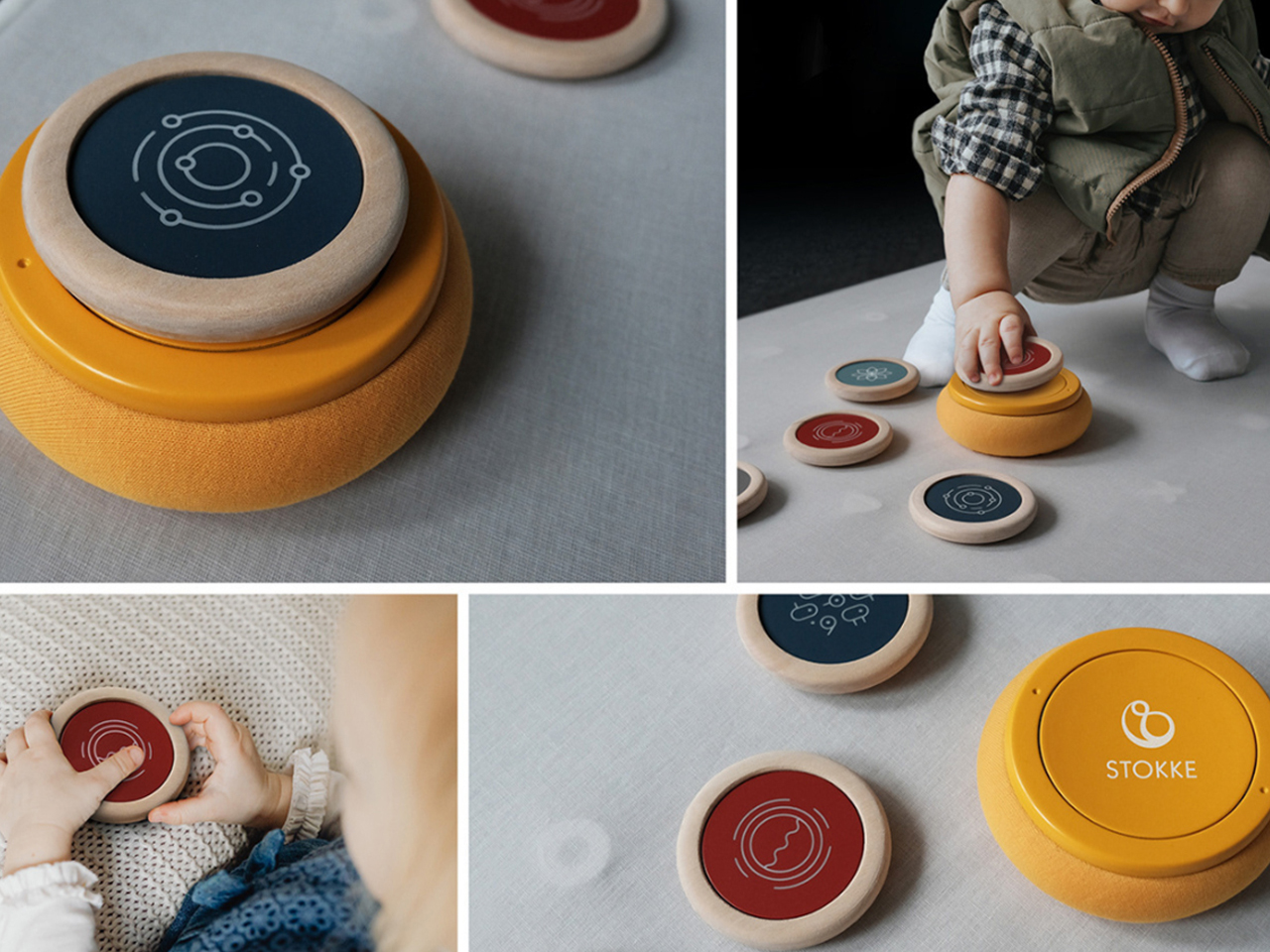
Crafted with recycled polyester and EVA foam, it offers comfort and durability while reflecting a commitment to environmental responsibility. This play mat blends quality craftsmanship with minimalist aesthetics, demonstrating how thoughtful design can enhance childhood development while respecting the planet, a hallmark of Scandinavian design philosophy.
3. Minimalism
Minimalism is a defining feature of Scandinavian design, focusing on simplicity and functionality. By eliminating unnecessary elements, designers create products that are both aesthetically pleasing and highly practical. João Teixeira’s Cloth coffee table exemplifies this minimalist approach, blending Scandinavian and Japanese design principles in a style known as “Japandi.”
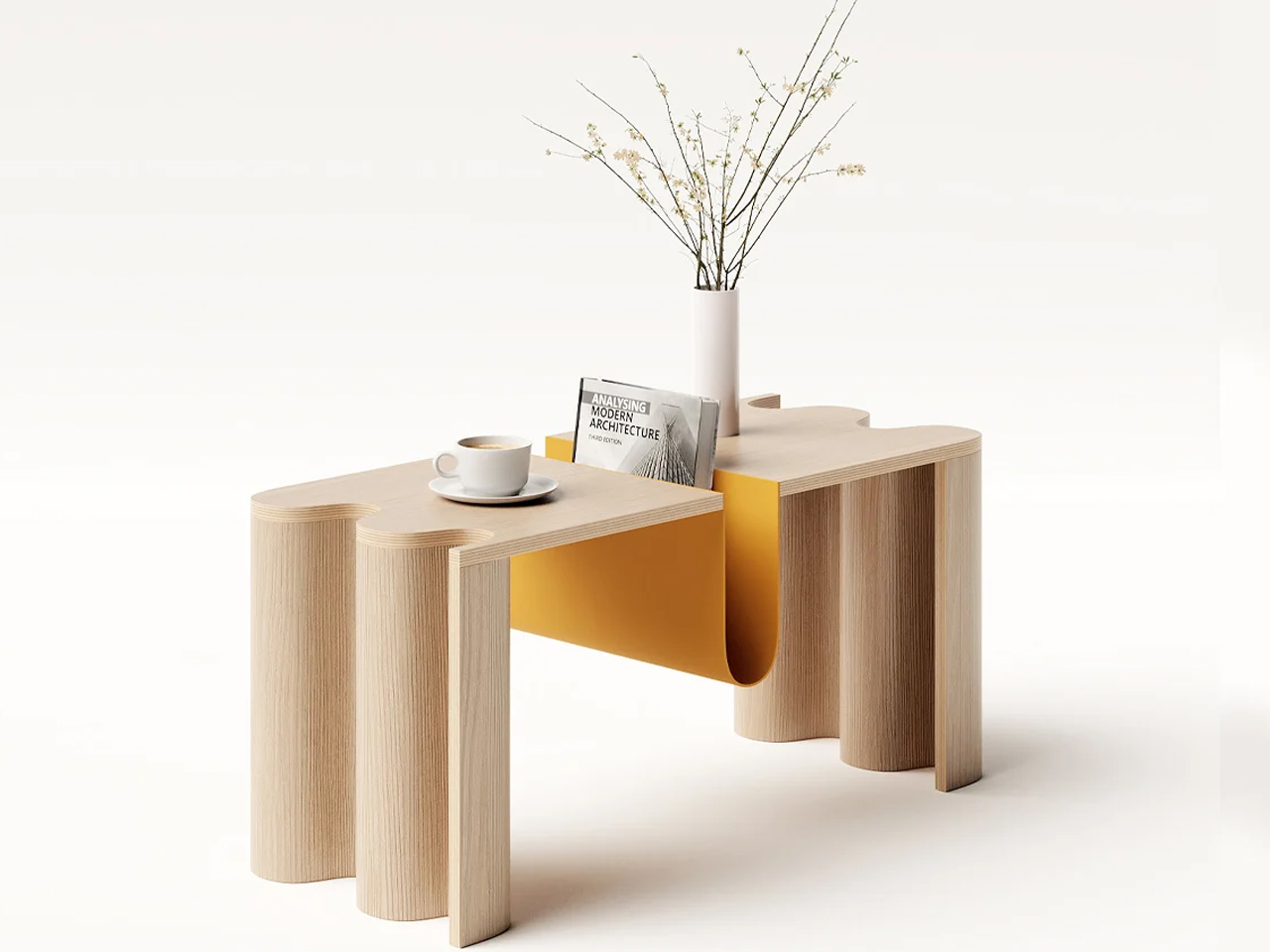
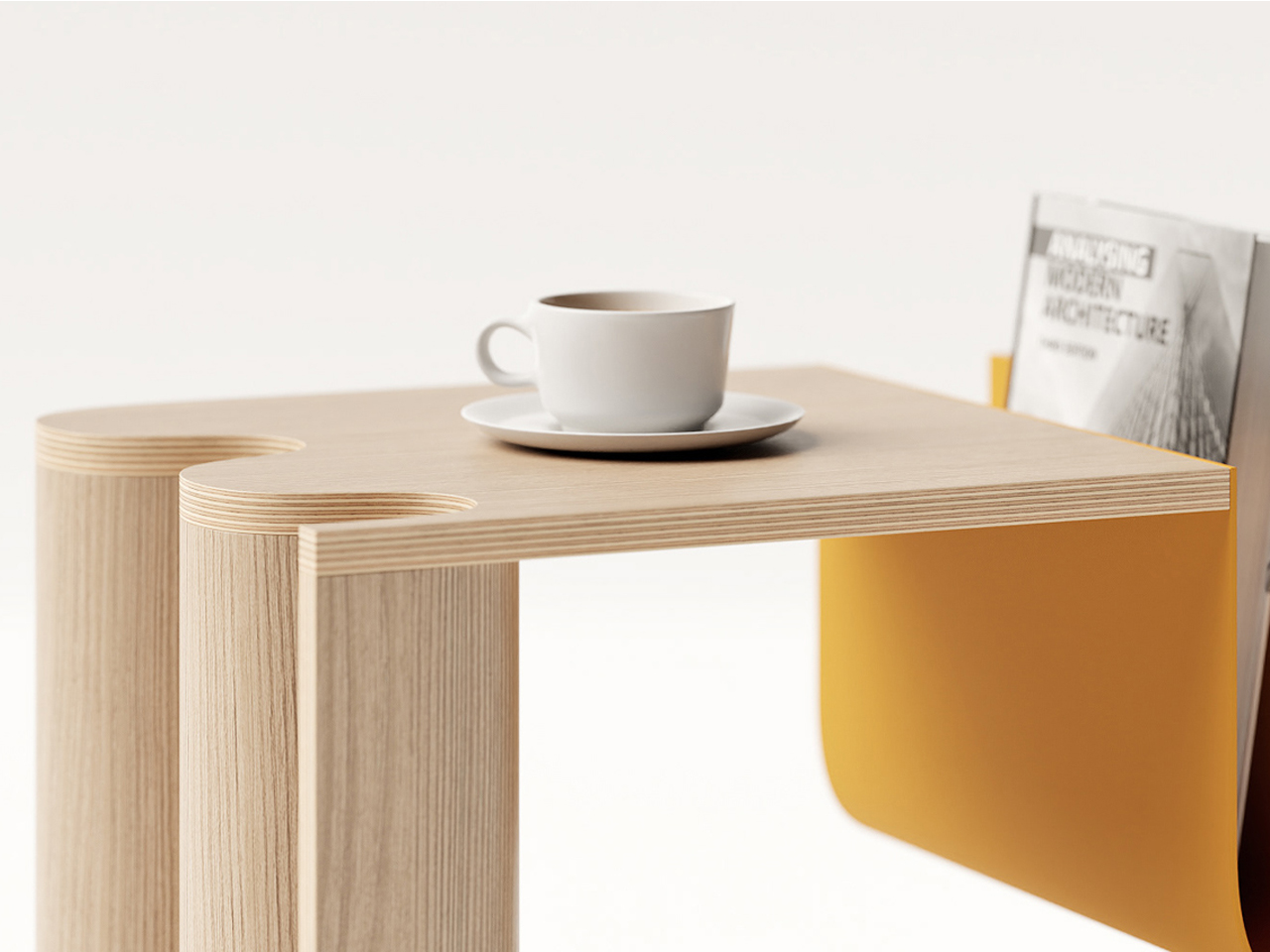
The table features a striking curved bookstand and undulating edges, balancing boldness with elegance. Concealed hardware ensures durability, while the subdued color palette adds warmth and groundedness. This fusion of minimalist principles from both cultures results in a dynamic yet balanced aesthetic that embodies Scandinavian design.
4. Neutral Colors
Neutral colors are a hallmark of Scandinavian-inspired products, often featuring shades like white, gray, beige, and brown. These colors create a serene and calming atmosphere, enhancing the visual appeal of designs. The Airberg sofa collection by Swedish brand Offecct is a testament to this aesthetic, blending comfort and avant-garde design with its gray upholstery.
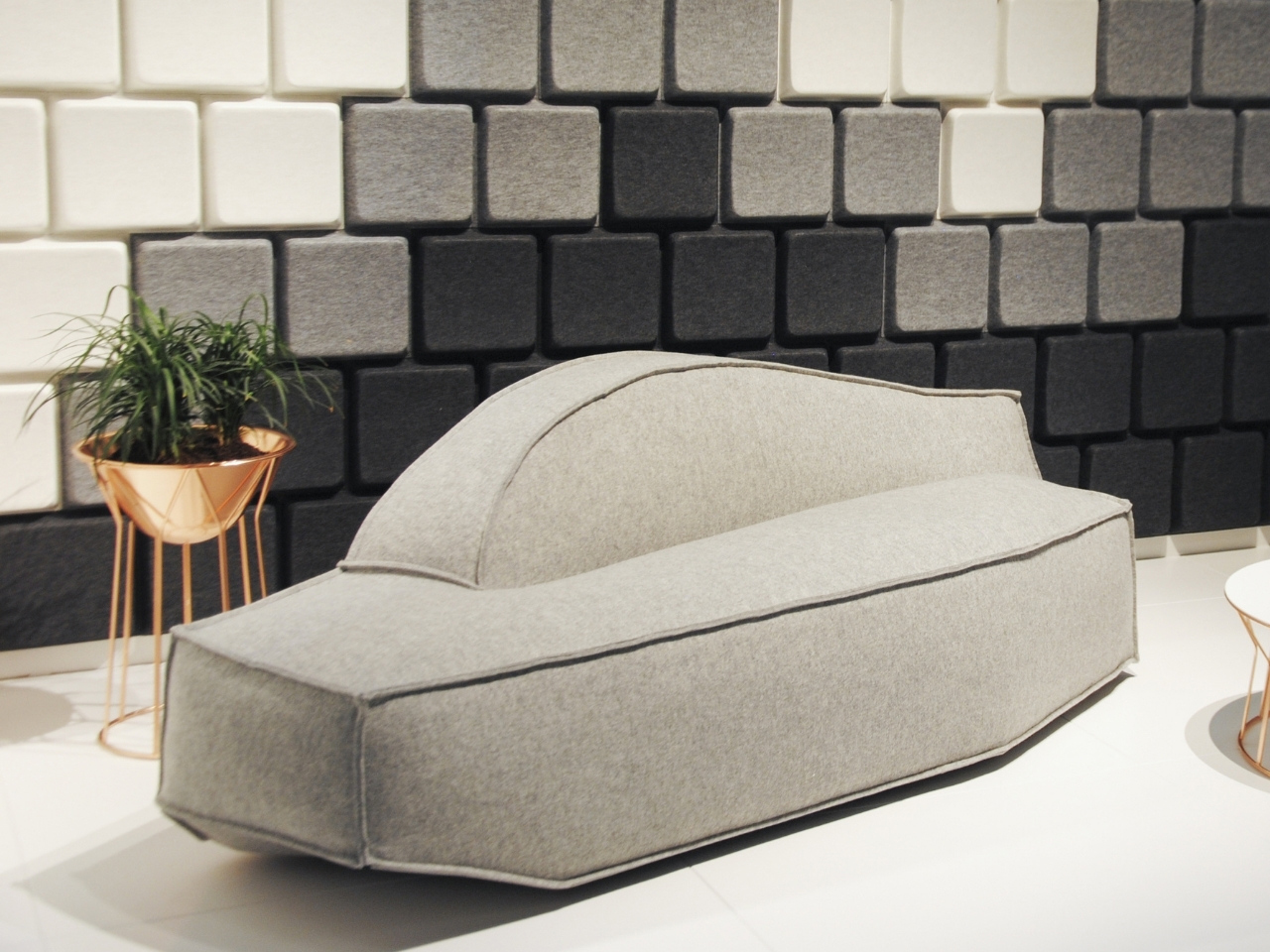
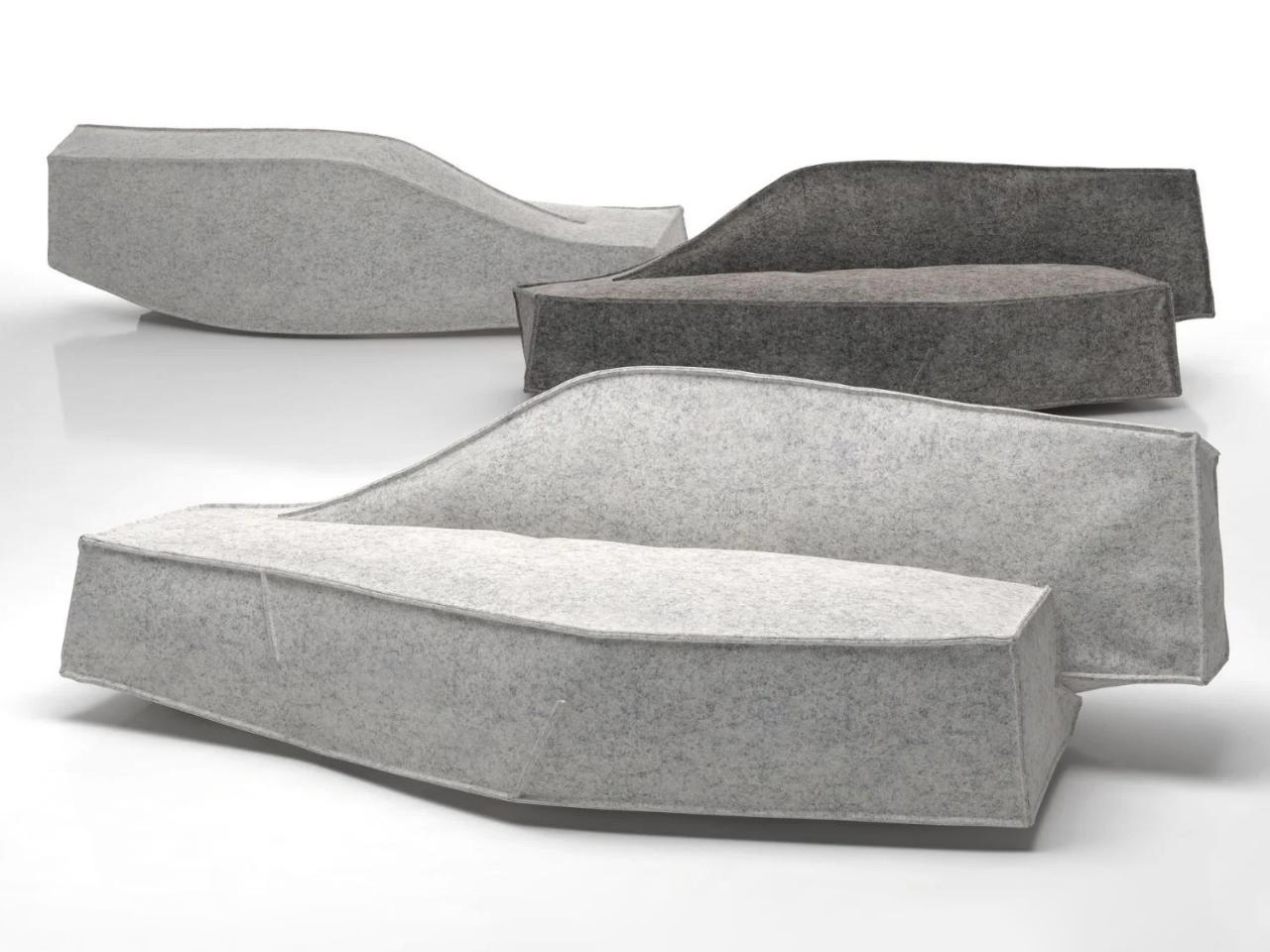
Crafted from flexible padding materials, these sofas integrate a metal base and seat frame, offering enhanced comfort through a special suspension system. The use of gray underscores the modern, environmentally conscious design ethos, making these sofas a staple in Scandinavian-inspired interiors.
5. Ergonomic Design
Ergonomic design is central to Scandinavian product design, enhancing human comfort while maintaining sleek aesthetics. This approach ensures that everyday products are both visually appealing and pleasurable to use. The 4 PM chaise longue chair by Massproductions exemplifies this philosophy with its minimalist aesthetics and functional elegance.
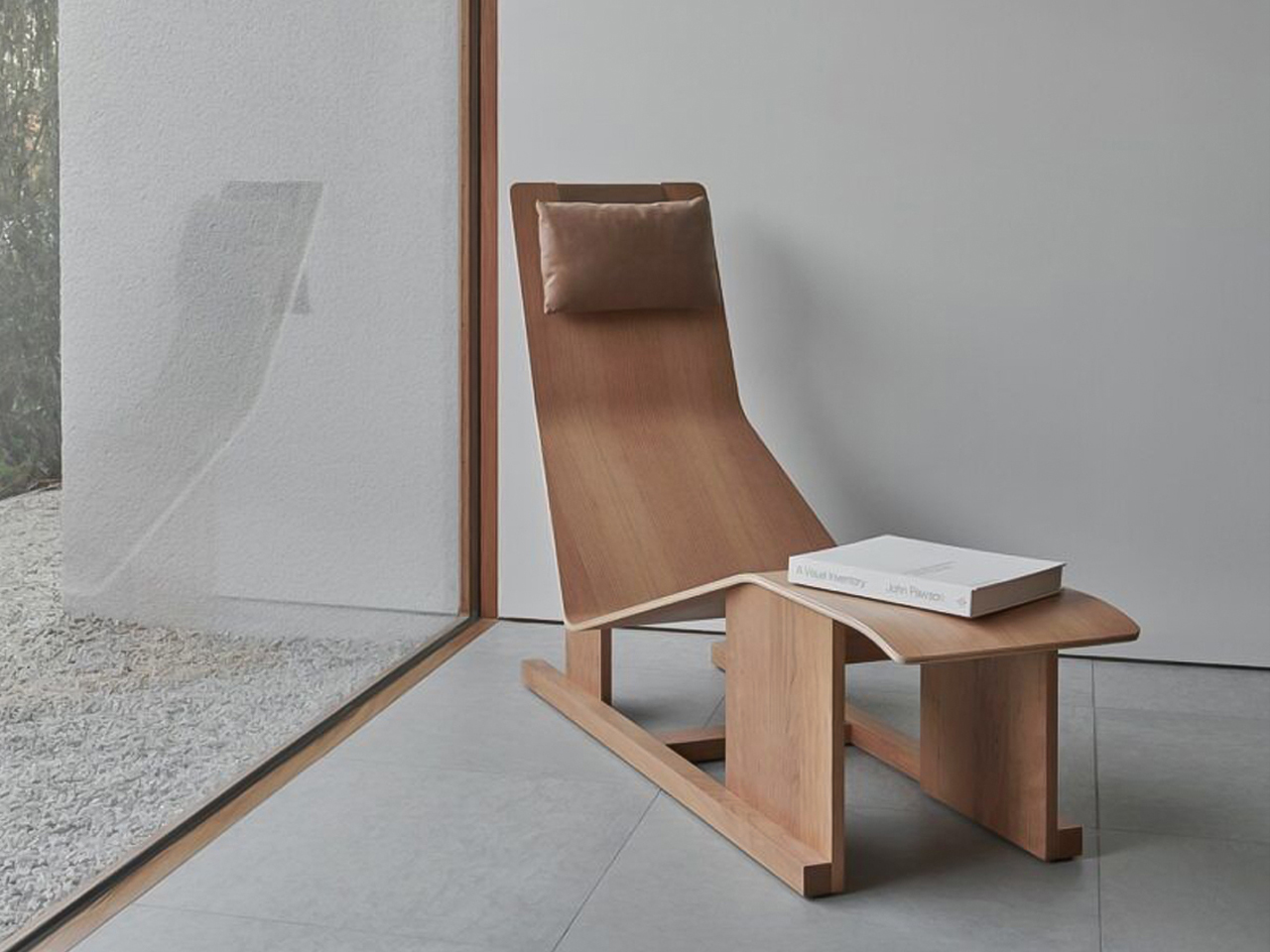
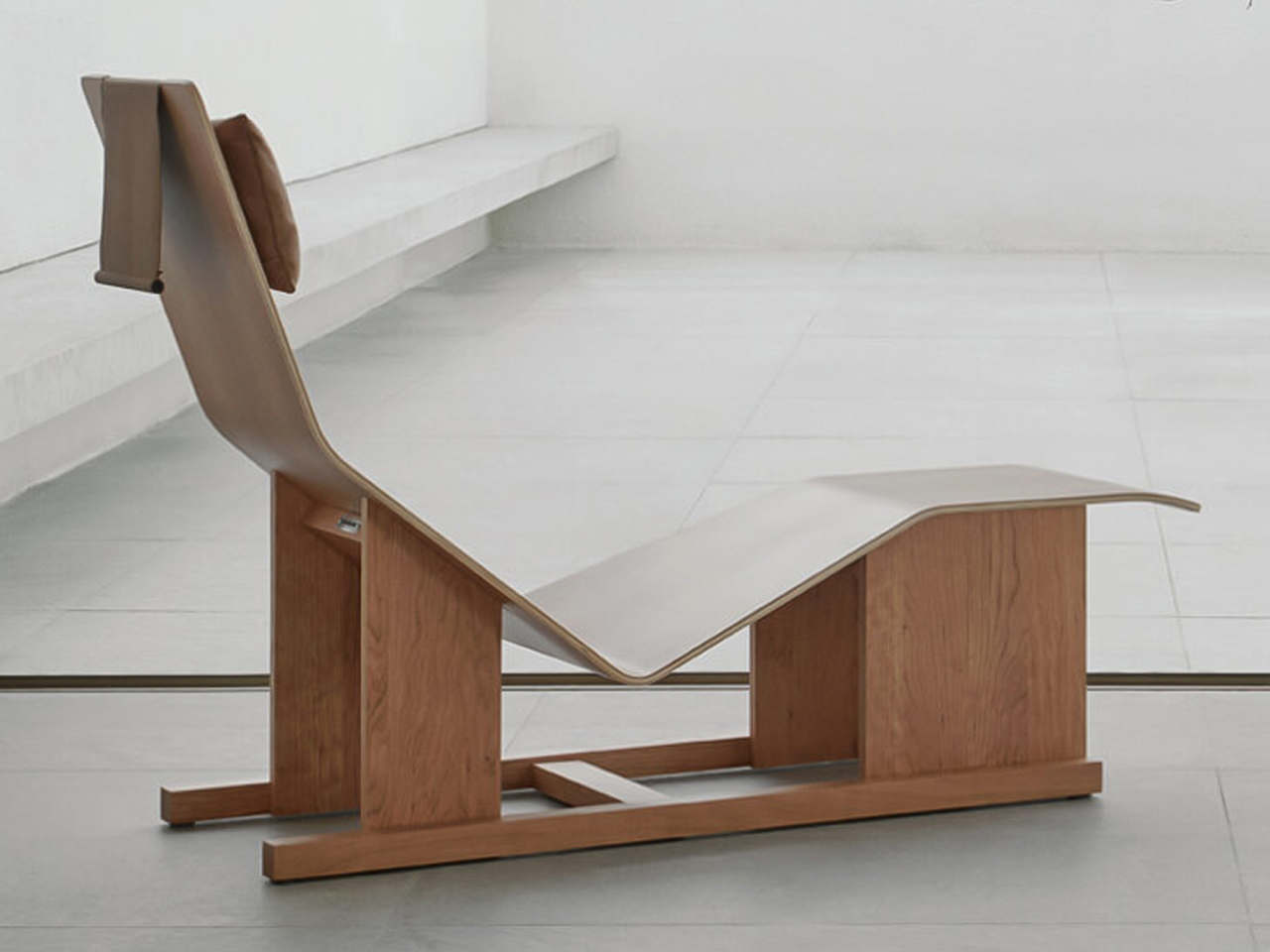
Crafted from sustainable materials like Douglas fir or cherry wood, the chair embodies simplicity, durability, and ergonomic comfort. It enhances modern interiors while reflecting Massproductions’ dedication to quality craftsmanship and sustainable practices. This focus on ergonomic design aligns perfectly with Scandinavian values, ensuring products look good and feel good.
6. User-Centric Design
User-centric design is a key aspect of Scandinavian products, ensuring they are intuitive and enjoyable to use. Designers prioritize the end user, creating products that seamlessly integrate into daily life. João Teixeira’s Bars desk exemplifies this approach, featuring minimalist aesthetics and practical organizational features.
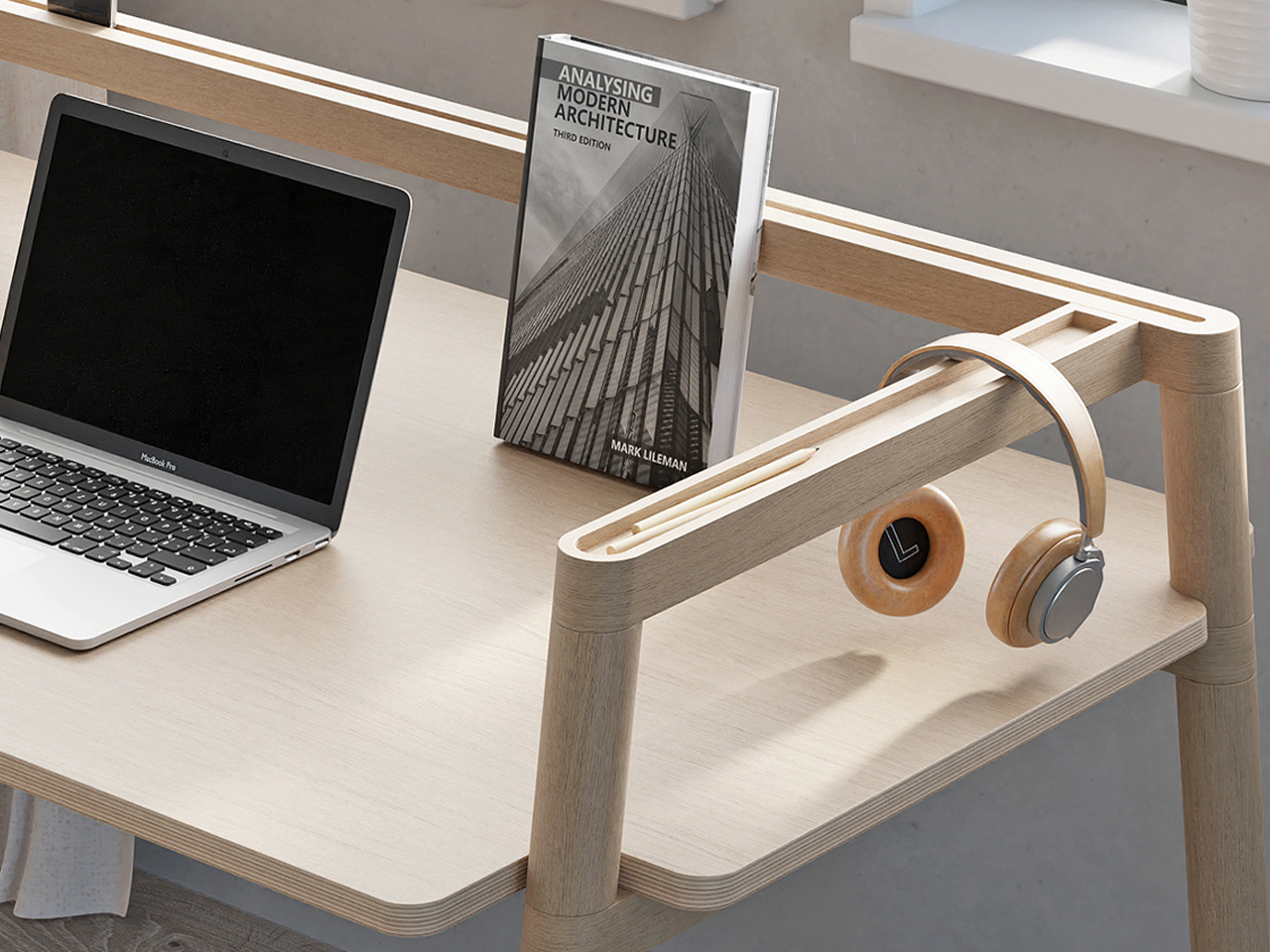
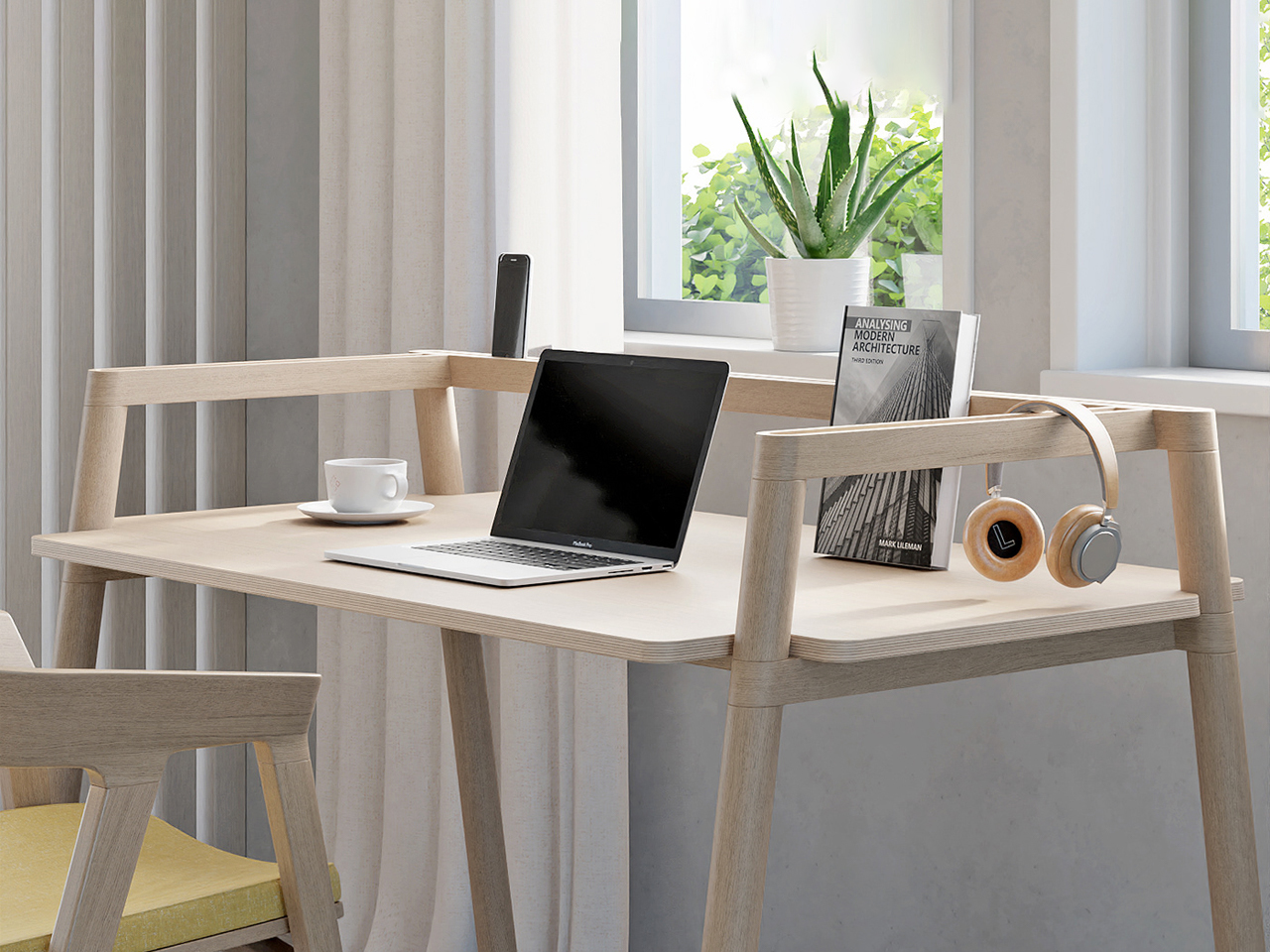
Overlapping wooden beams provide intuitive storage solutions for essentials like writing utensils and smartphones. Sunken storage bins and a dedicated slot for smartphones enhance functionality while maintaining a clean, clutter-free workspace. This commitment to user-centric design is characteristic of Scandinavian design, ensuring products are both functional and aesthetically pleasing.
7. Form Follows Function
The principle of “form follows function” is integral to Scandinavian design, where every element serves a purpose. This design clarity results in products that are devoid of ornamentation, emphasizing practicality and user-centric design. The Atlas modular power tool system reflects this principle, prioritizing practicality and adaptability.
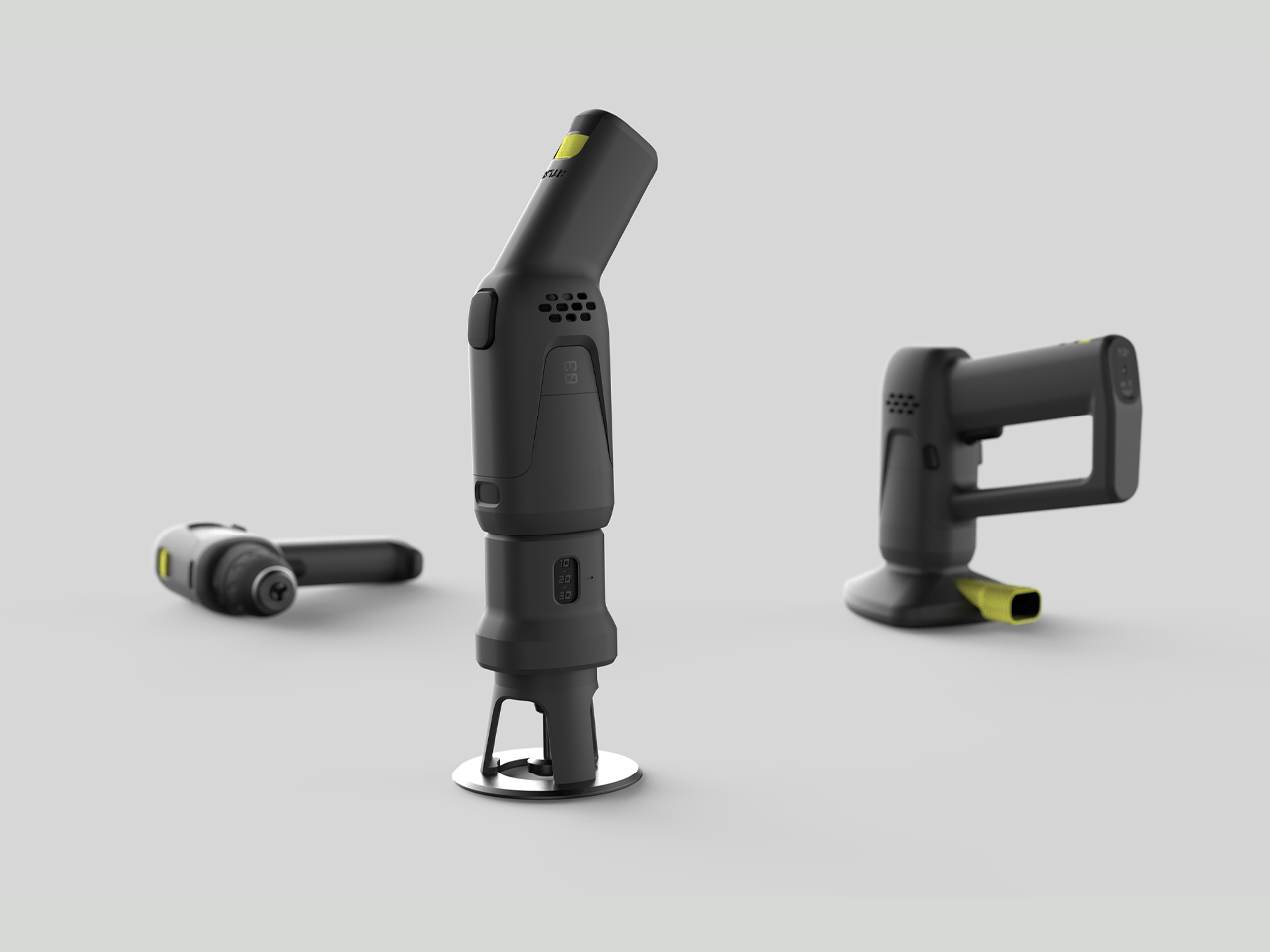
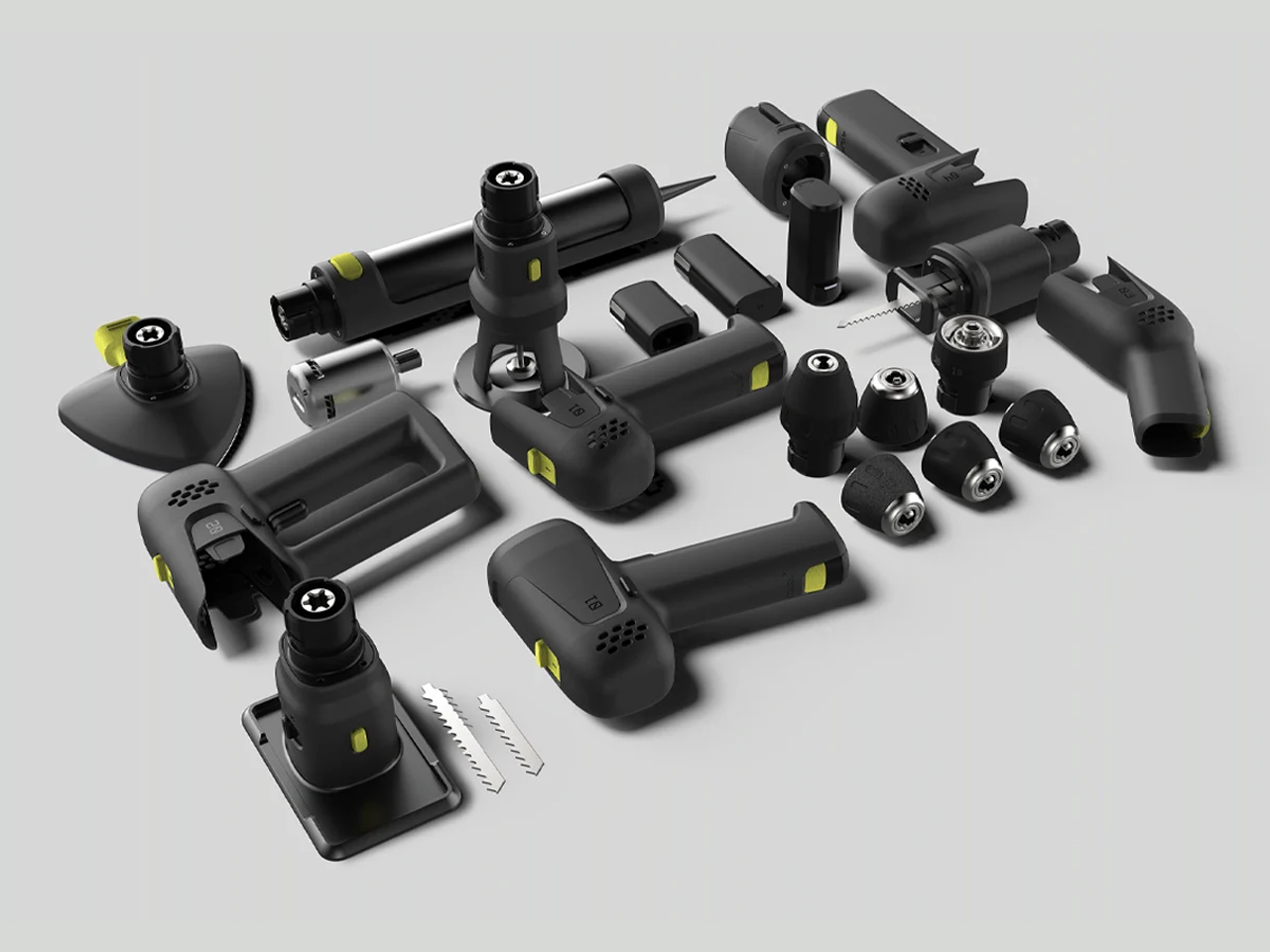
Its modular structure allows each component to serve specific functions, ensuring the tool system adapts seamlessly to diverse user needs and tasks. This approach enhances usability and emphasizes functionality in every aspect of its design. Scandinavian products showcase design clarity, ensuring that form follows function in a purposeful and practical manner.
8. Exquisite Craftsmanship
Exquisite craftsmanship is a cornerstone of Scandinavian design, prioritizing durability and meticulous attention to detail. This focus ensures that every facet of a product is carefully executed, resulting in durable and often higher-cost items due to their intricate details. The Dag daybed, designed by Teresa Lundmark and Gustav Winsth, showcases this commitment to craftsmanship.
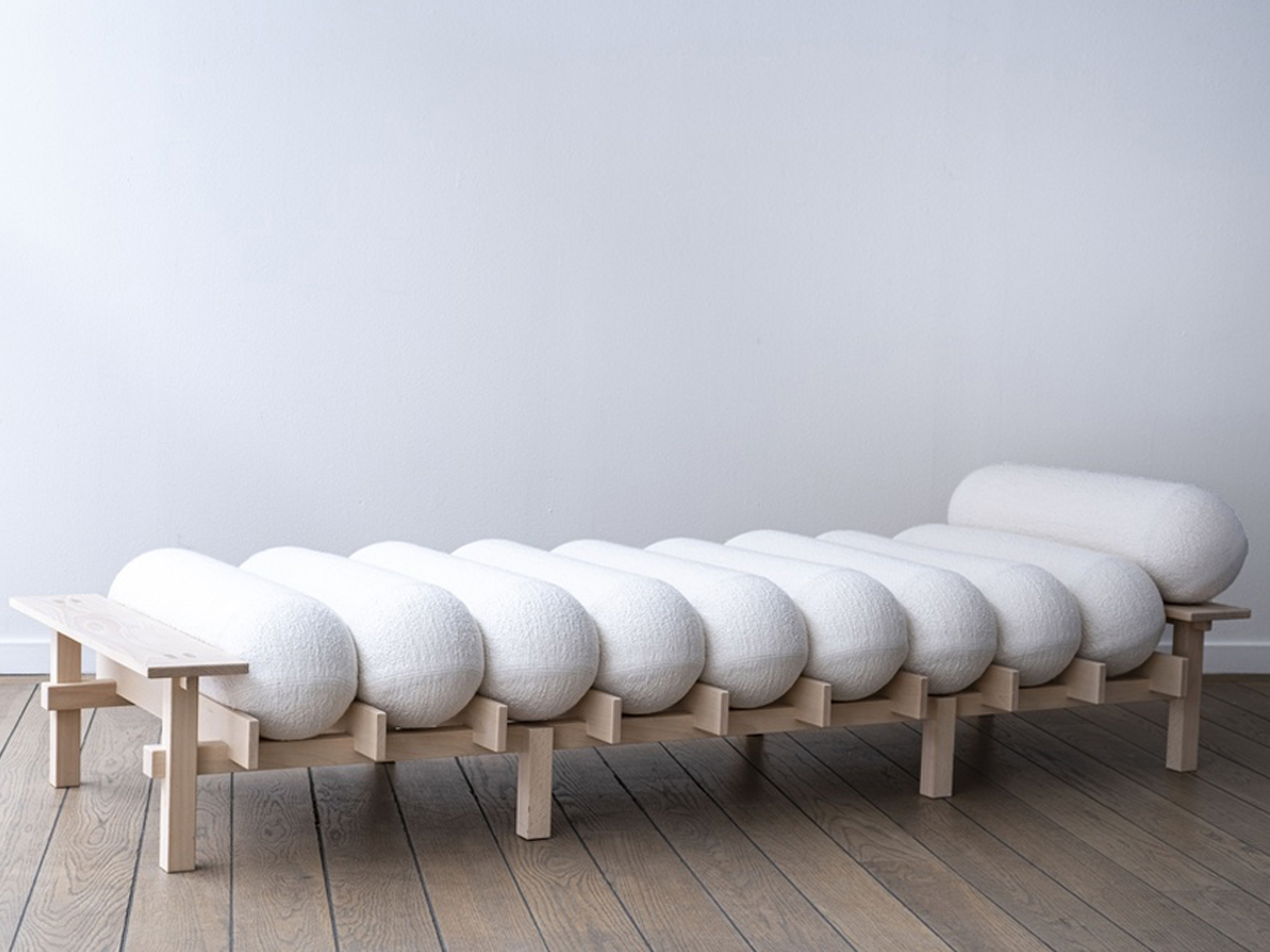
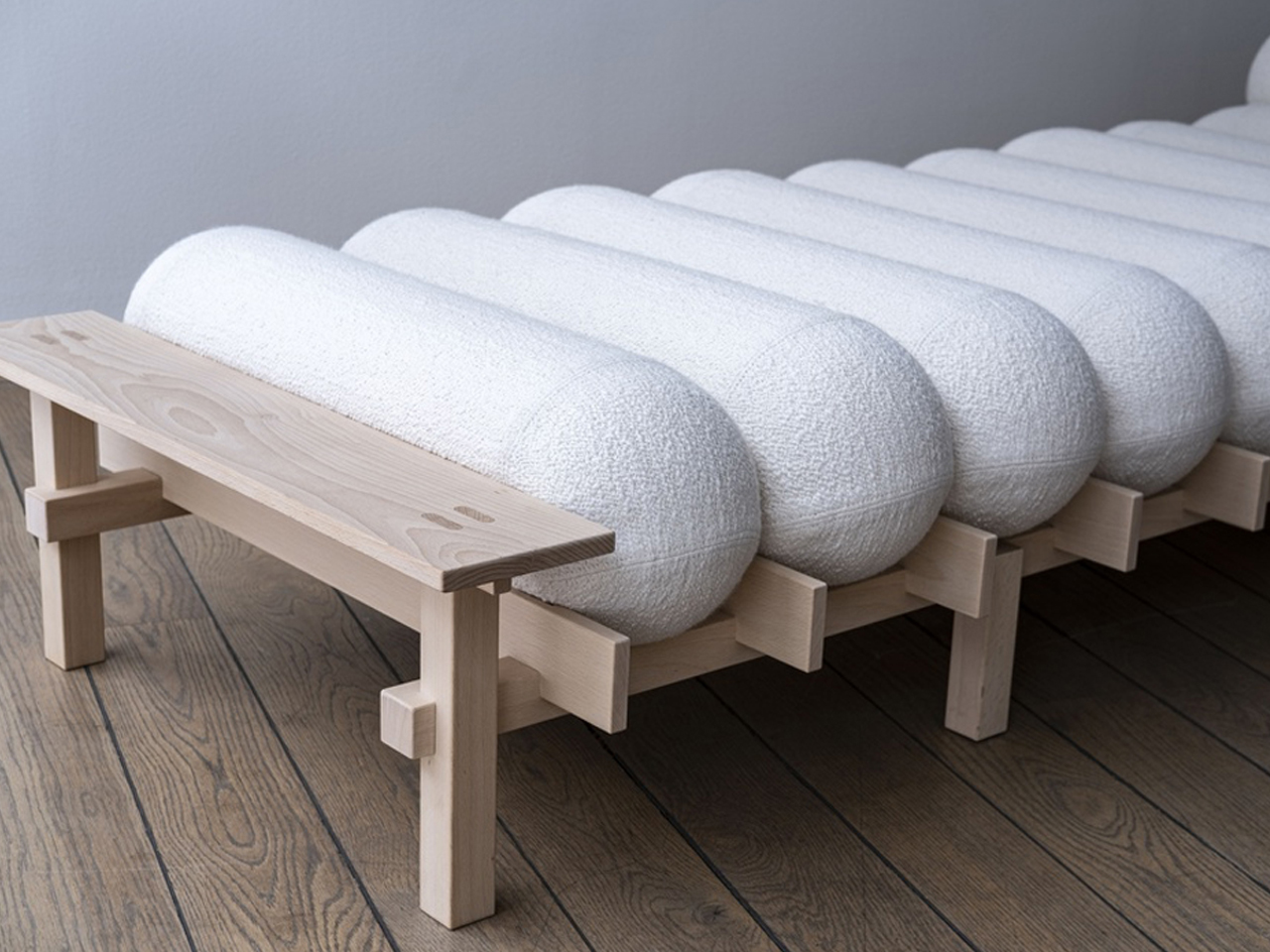
With a solid beech wood frame and Zeppelin-inspired cushions, the daybed balances simplicity with expressive design. This blend of meticulous craftsmanship and sustainable practices underscores the commitment to eco-friendly furniture, emphasizing form and functionality in Scandinavian design.
9. Timeless Design Trend
Scandinavian product design transcends fleeting trends, maintaining relevance across eras while integrating with various design styles. Its enduring appeal and longevity make it a timeless choice in the world of design. The Plico Chair by Carl Hansen & Søn exemplifies this timeless design trend.
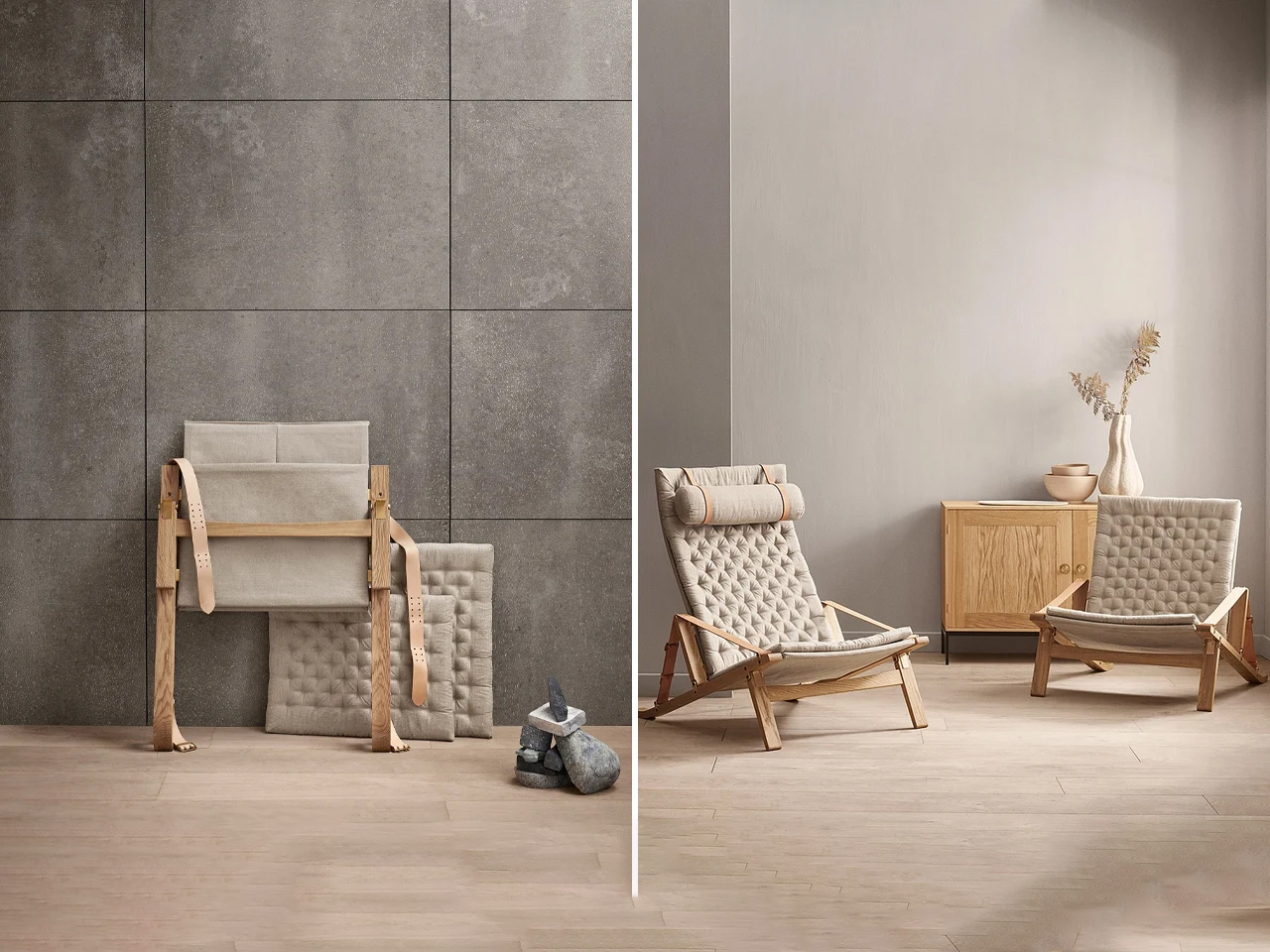
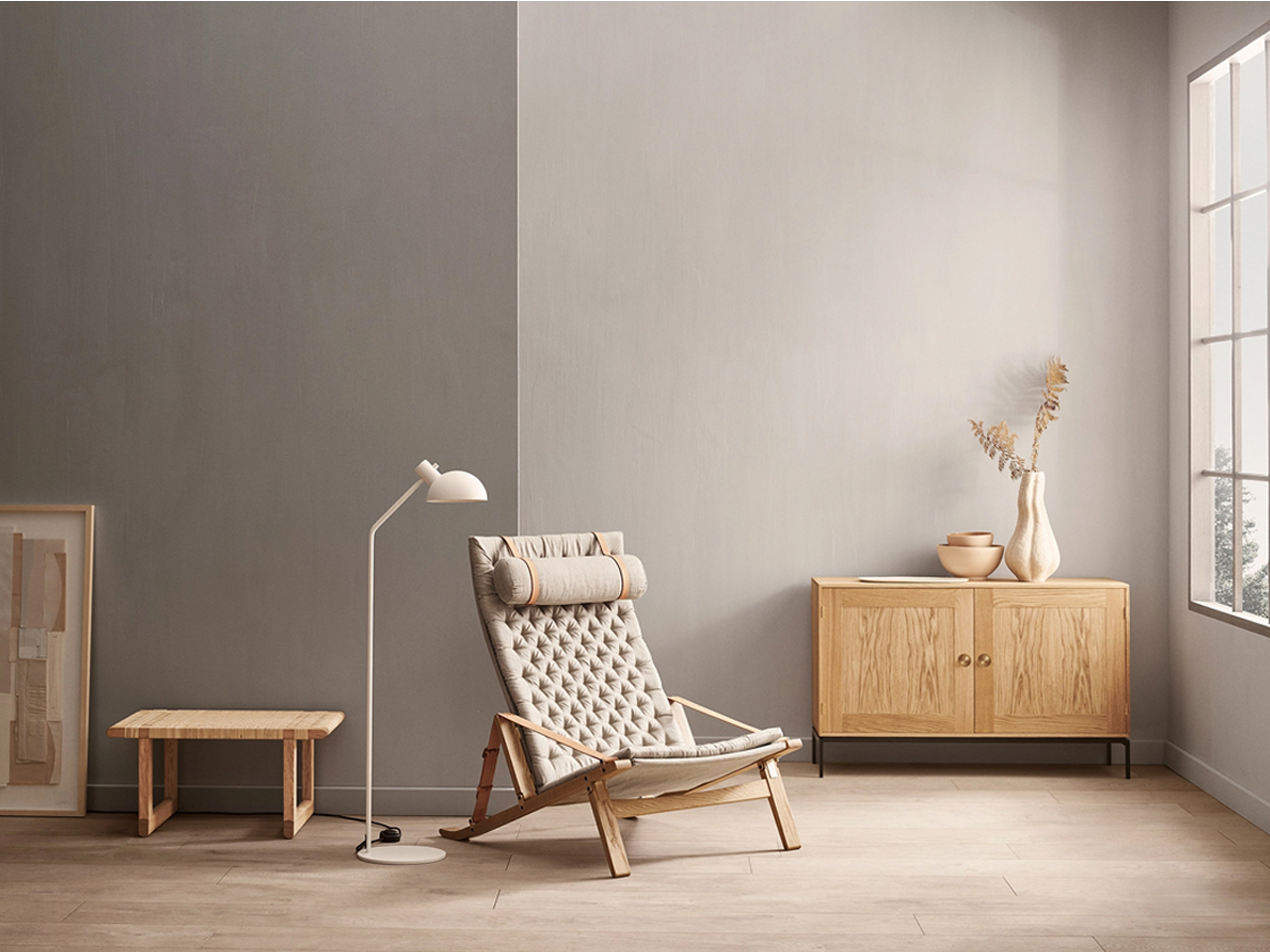
This handcrafted wooden lounge chair is designed to fold neatly for easy storage, combining Scandinavian minimalism with practicality. Its solid oak frame and linen canvas upholstery reflect a commitment to quality and durability. The chair’s reclining design, leather strap armrest, and elegant brass fittings make it versatile and stylish for any setting.
10. Hygge
The Danish concept of hygge emphasizes comfort and coziness, central to Scandinavian product design. This aesthetic is shaped by the region’s long, dark winters, influencing designs characterized by light colors and simple forms that prioritize warmth and relaxation. SeungHyun Lee’s HYGGE electric kettle and beverage jar hybrid embodies this concept.
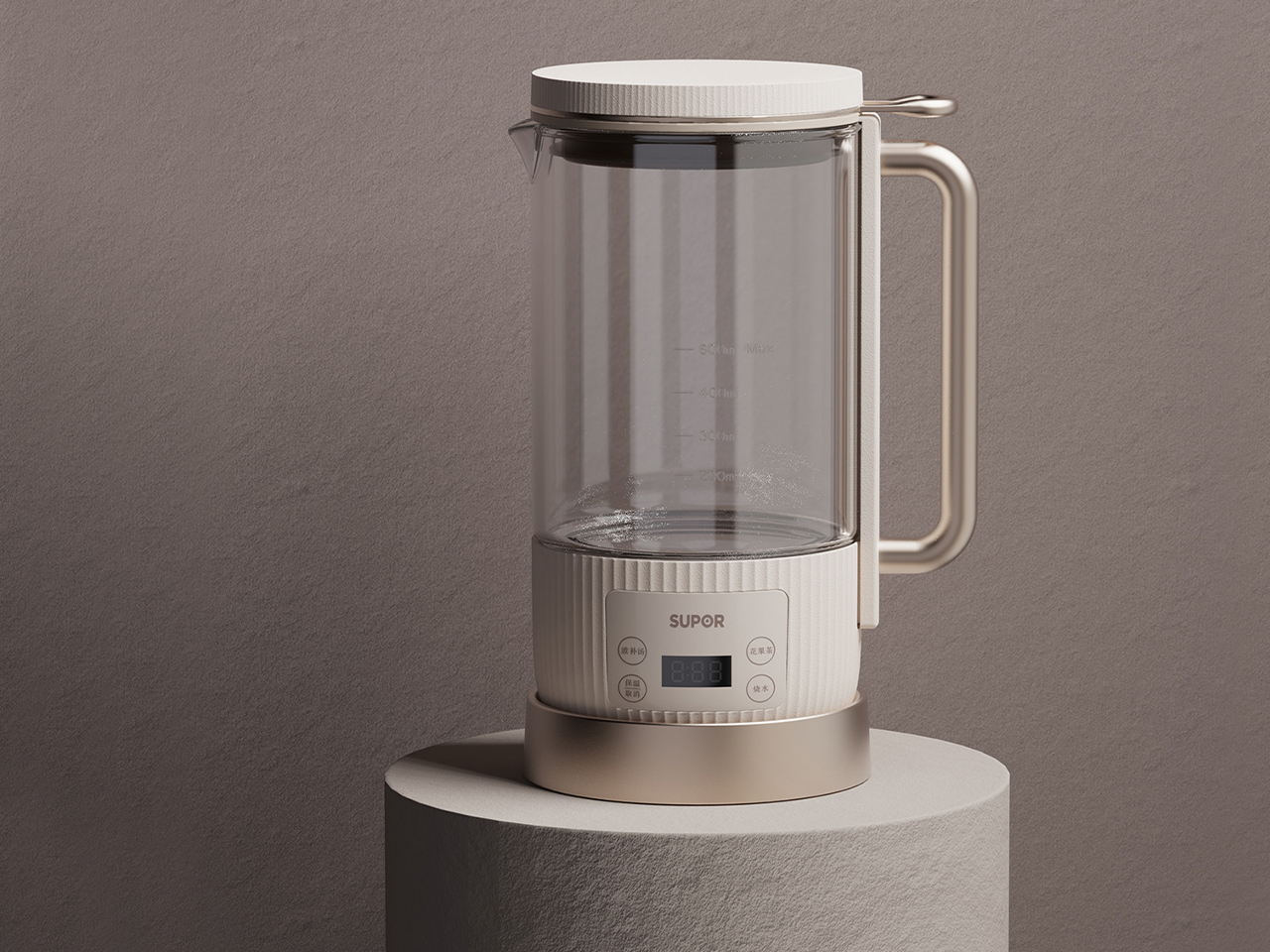
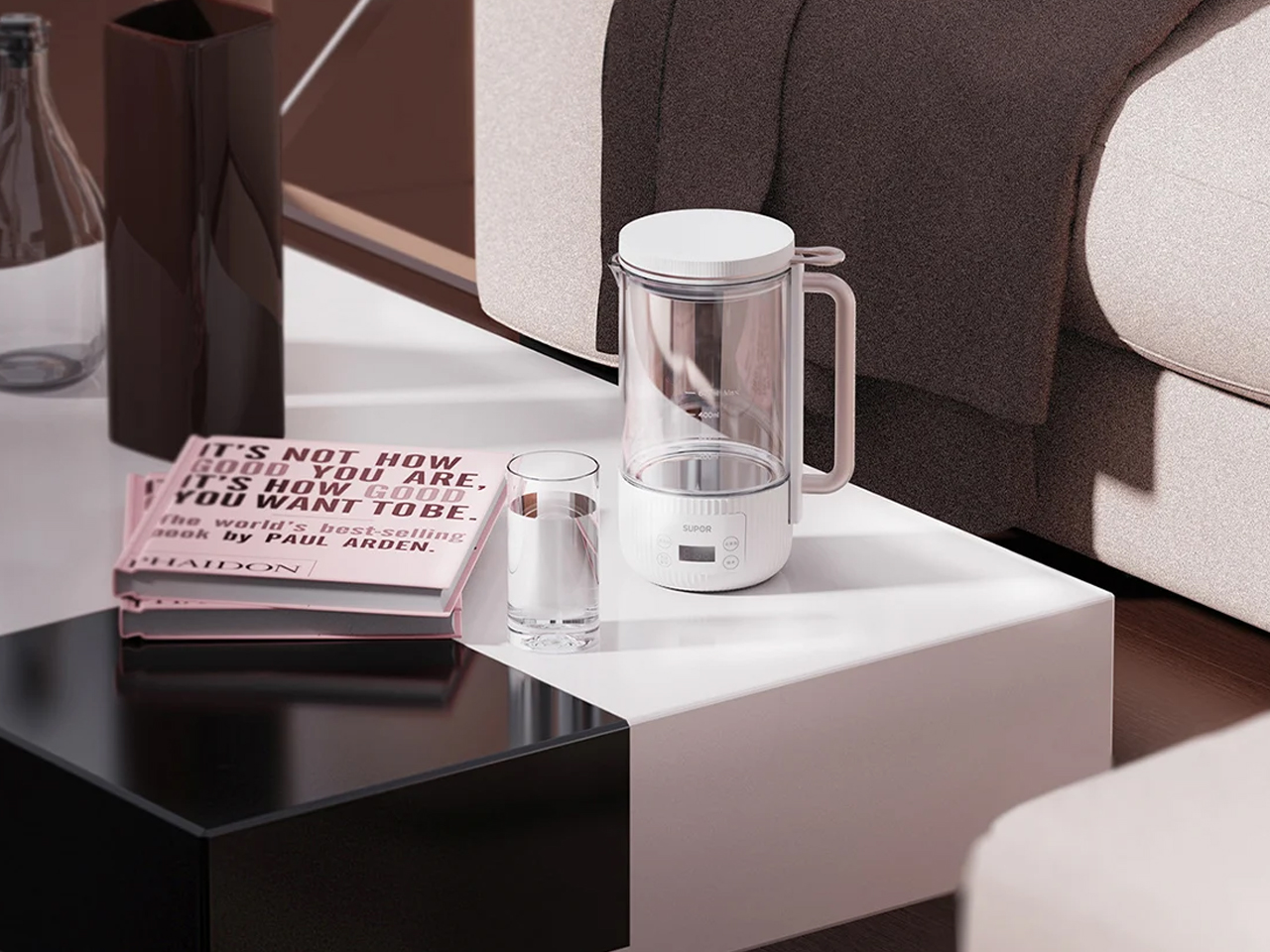
Named after the Danish idea of ‘hygge,’ it combines coziness and well-being with a sleek design that integrates nature-inspired curves and minimalist lines. This balanced aesthetic elevates the simple act of boiling water into a delightful ritual, enhancing the pleasure of brewing and enjoying tea daily.
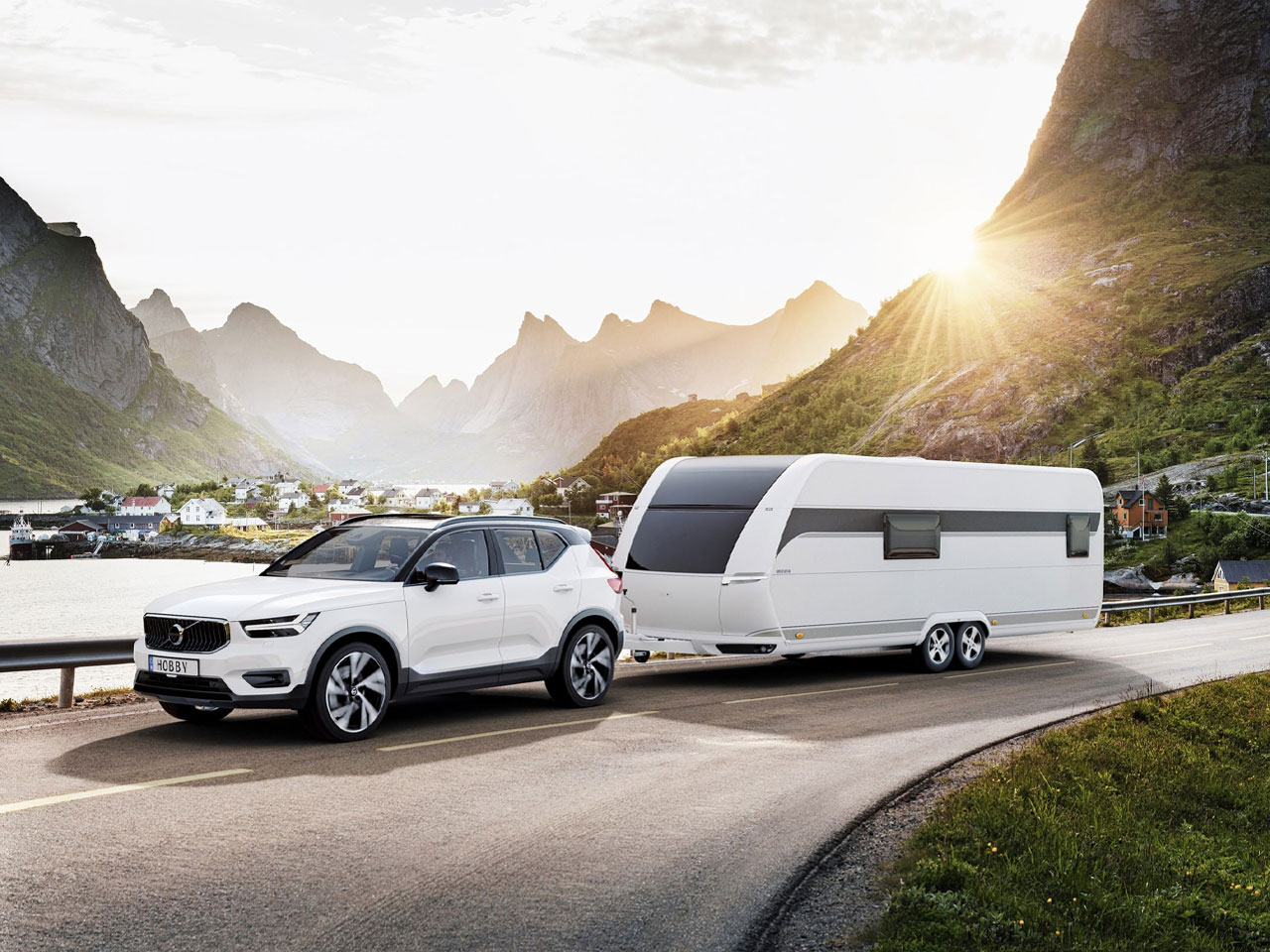
Hobby’s new Maxia caravan combines Scandinavian design with mobile living to create a luxurious, city-apartment-on-wheels experience. Inspired by hygge-style comfort, the Maxia features a sleek exterior with rounded windows and a panoramic front window for expansive views.
Available in two lengths, the Maxia 660 WQM accommodates up to four adults with a full kitchen, bathroom, and a versatile living area that converts into a sleeping and dining space. The interior includes smart appliances, ample storage, and a modern, open floor plan designed for comfort and convenience on the road.
Scandinavian product design integrates simplicity, practicality, and aesthetic appeal, emphasizing both functionality and natural beauty. As a result, Scandinavian-inspired products achieve a balance between form, function, and timeless style, making it a popular design trend that’s here to stay.
The post Sustainable Chic: Exploring the 10 Timeless Principles of Scandinavian Product Design first appeared on Yanko Design.
0 Commentaires